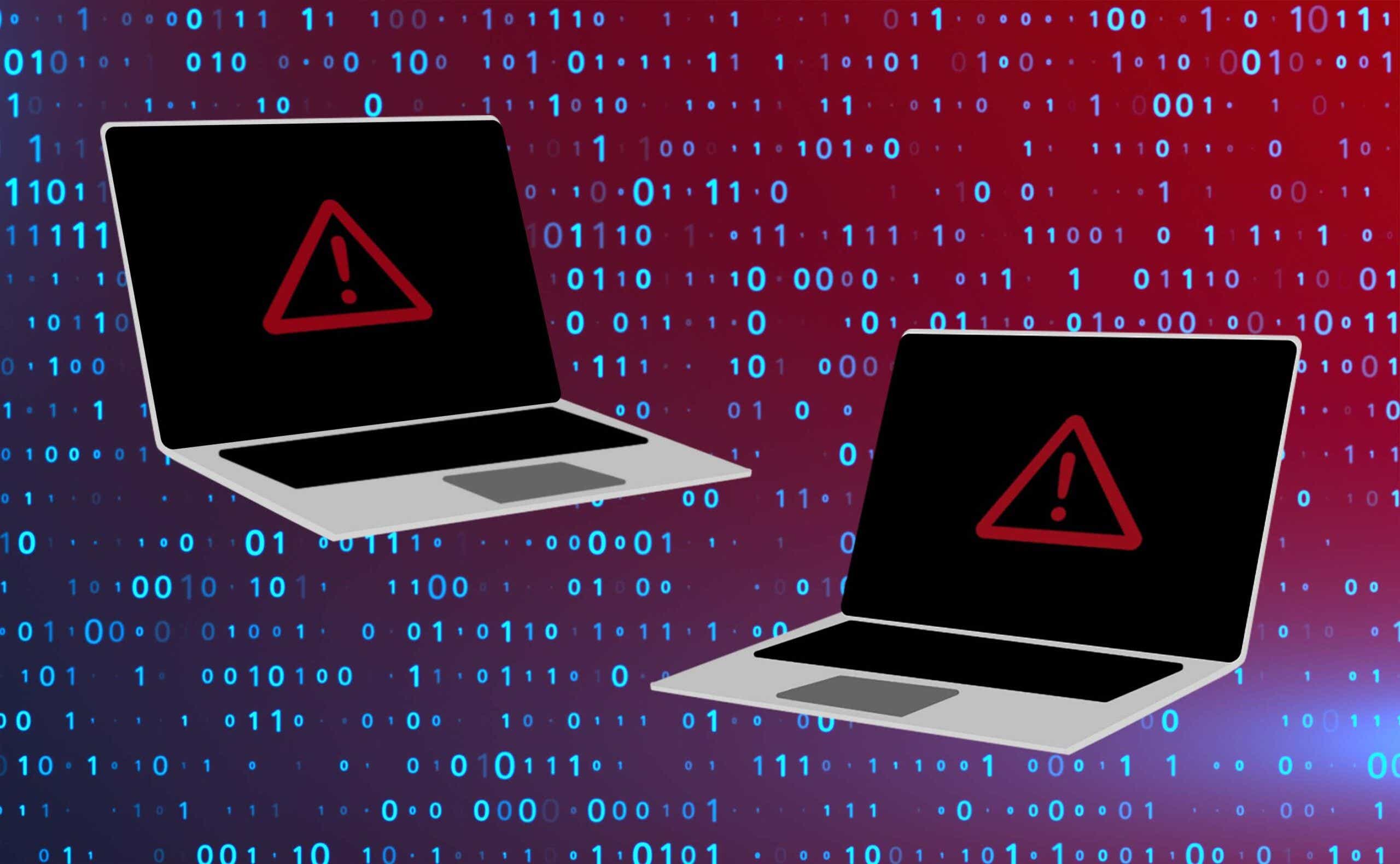In the last several weeks, Russia hasn't just attacked Ukraine with physical weapons of violence. Russia has also launched a cyber war, Vox reports, with hackers wiping certain Ukrainian websites entirely, and unleashing malware on government software, too. This is a particularly potent and modern form of warfare, and because of the United States' increasing involvement in the conflict, there's reason to believe Russia might turn it's cyber-eye on us, next.
Earlier this year, President Biden spoke directly in response to this rising threat. “If Russia pursues cyberattacks against our companies, our critical infrastructure, we’re prepared to respond,” he said, per CNN. He went on to confirm that the government has been preparing "for months" with the private sector for this possibility, both in terms of how to defend against these attacks and how to respond to them.
But what about individuals? Should we be getting ready for a cyber war, too?
Pablo Molina, Drexel University’s chief information security officer, spoke to PBS about the rising threat of cyber warfare. “I believe that everybody should be prepared for this — individuals as well as organizations,” Molina said. “Certainly the power grid, internet connectivity, the financial systems, our ability to get money from an ATM to make payments with credit cards, water systems, sewage systems, transportation networks — all of those are key objectives for any cyber warfare anywhere in the world.”
Below, we'll outline some steps you can take to be prepared for any type of cyber attack, big or small. But first, don't miss this eye-opening conversation on the topic between Katie and Nicole Perlroth, a former reporter for The New York Times and advisor for CISA (the Cybersecurity and Infrastructure Security Agency):
First things first: beef up security measures on your personal devices
This part, you've likely heard before — but it's important, so listen up! The best thing you can do to keep your personal accounts safe is to create strong passwords for all of your accounts. And yes, that means changing your password if it's currently "password"...
Where you can, you should set up two-factor authentication, which gives you an extra level of security for things like your email account, your bank accounts, and more.
You should also watch out for text messages from unknown numbers, or emails from accounts you don't recognize. “The types of scams we can anticipate range from politically oriented robocalls and texts to fake donations and, in general, trying to get people involved in cryptocurrency,” Clayton LiaBraaten, a senior strategic advisor at spam-blocking app Truecaller, told CNBC.
For this reason, you definitely should not click on any link you receive from an unknown sender, regardless of how you receive it.
Lastly, Forbes suggests you have some basic best practices when it comes to your security, like doing an annual checkup on the safety of your accounts, limiting what personal information you share on social media, and reading the fine print whenever you give your information to a new company or website.
Plan for a cyber attack the way you might plan for a weather emergency
It's not just about changing the password for your checking account — you also need to plan for a larger attack, one that could keep you from accessing basic material goods for a short period of time.
“Imagine what you would do if the internet were not available, if your mobile phone were not available,” Molina said. “What is your backup plan to contact your loved ones, for example? I’m not going to say keep thousands of dollars at home, but it’s never a bad idea to keep a little bit of cash at home in case ATMs are momentarily unavailable and you still need to get money.”
It might seem like cash is quickly becoming an antiquated currency, but this is a great reason to keep some 10s and 20s stashed somewhere safe at home! You should also make a little emergency supply of other materials. Think about the steps you might take to prepare for hurricane season or a snowstorm. Preparing for a cyber attack is quite similar.
“At the very least, have a flashlight, maybe gas in your vehicle you could use to recharge some small electronics should the wireless networks continue to operate," Molina said. "Just a little bit of water at home in case the water supply becomes momentarily unavailable.”
Remember that cyber wars can come via misinformation campaigns, too
When most people imagine cyber warfare, they likely think of hackers finding a way to access bank accounts and other essential pieces of information. But it's important to keep in mind that another type of cyber warfare is just as common, and has already taken place before.
In 2016, Russian hackers carried out a misinformation campaign on social media channels, working to polarize the American people during the hotly contested presidential election. This type of effort is a form of cyber warfare, Molina warns, and it's just as important to watch out for as the type of cyber attacks aimed at your personal information.
"We’re a very divided society right now politically regarding vaccines, the economy, and race," Molina said. "And it is not unusual for some Russian sponsored trolls to fuel the flames of those conflicts online by spreading fake news and information.” For this reason among many others, it's never been more important to fact check your sources before you amplify posts or other content on social media.
This can be really tricky at times, especially when you're seeing posts that have been shared by people that you do know and trust. But just take a moment and ask yourself if you actually know where the information is coming from. It might not end up being proof of cyber war, but it's a good practice to maintain, regardless.









